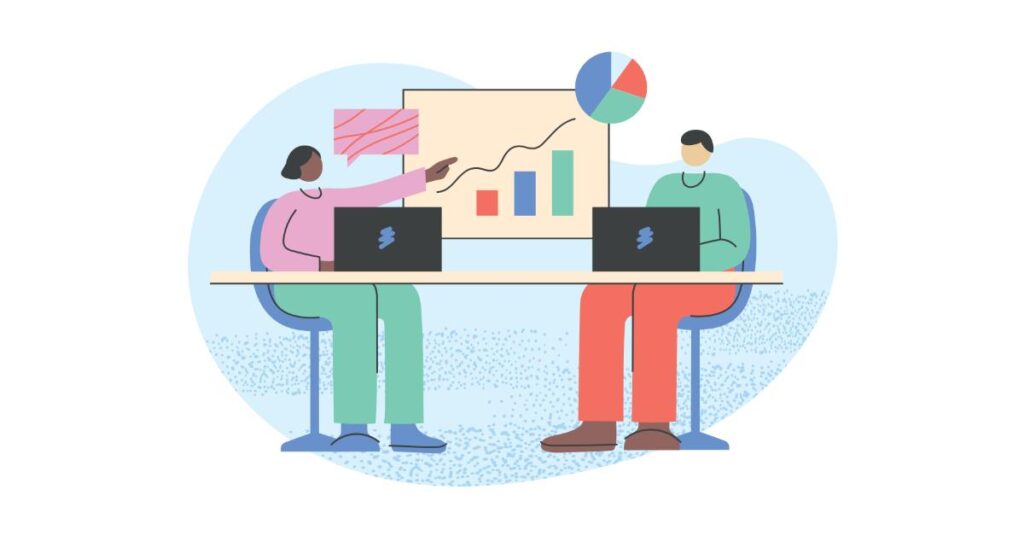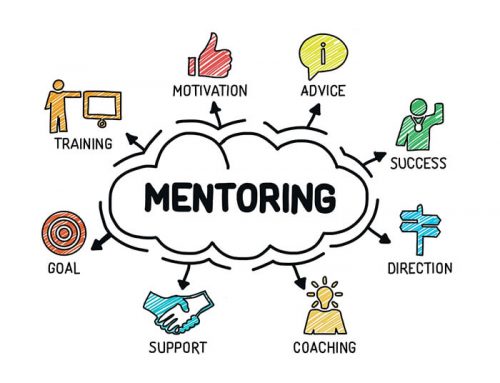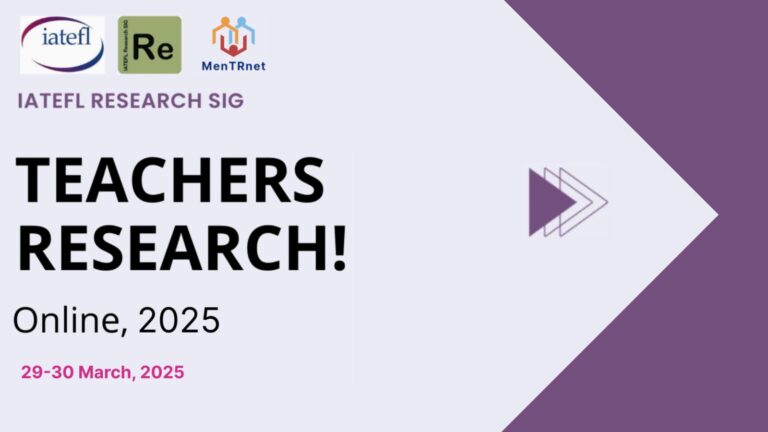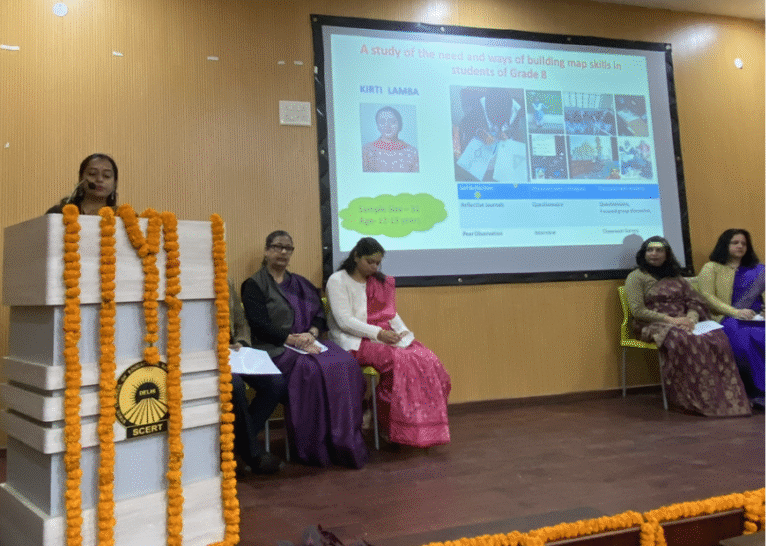
This personal reflection explores the power of supportive mentoring, both in my journey as a teacher and a researcher and in what I have learned from mentoring others. Through my experiences, I’ve realized that teachers can flourish if they are supported, guided, and encouraged. A simple act of support can help teachers overcome challenges, inspire and be inspired, and create classrooms where everyone feels valued and motivated to learn.

Like most busy teachers in Iran, I didn’t have the chance to research my classroom even though I was very keen to. I was working 12 hours a day and spending another three in traffic juggling between my full-time job and the two part-time ones to make ends meet. I was overworked, underpaid, and burnt out so research wasn’t a priority at that point; it was all about survival. Then, came the time to work on my master’s thesis, which had to be done on Fridays, the only day off we get for a weekend in my home country.
It was a challenging situation but also an opportunity to become a teacher-researcher. After all, I was passionate about conducting research in my classroom. The only problem was that I was drained. Thankfully, I had my thesis advisor to help me navigate the technical challenges of doing research but I was all alone on the personal life front, and I had to make time to read and write. It was challenging but I persevered, completed my thesis, and graduated. This success coupled with my interest in research made me decide to make research a permanent part of my career. Only this time, I didn’t want to do research in an overly taxing situation. So, I relocated to South America to enjoy a relaxed lifestyle that allowed me to focus on research.
Little did I know that a passionate fellow teacher-researcher would soon offer to be my mentor in South America. At the time, I was unacquainted with the concept of mentoring so when I heard the offer, I immediately wondered: why would I bother her with my problems? Why would she want to be bothered with my troubles? Then I asked myself: why shouldn’t I seek her council? Her offer is very generous, unconditional, and very needed. Soon, she made my life a lot easier by encouraging me to apply for a teaching position at a university in Ecuador. Sure enough, I applied and landed the job. Then, she patiently edited my research papers and consulted with me on various research-related aspects. To top it all, she introduced me to MenTRnet and now I know who a mentor is.
My struggles in Iran and my easy transition into the world of academia in Ecuador made me realize the importance of having a guide to illuminate the way, provide support, and facilitate transitions. But then I remembered: I had also mentored someone in the past. I remembered the day when my best friend called me to help his wife improve her English language skills and become an English teacher in Iran and that I didn’t hesitate to give her a clear plan and enough support to execute it. My help was also unconditional, generous, and much needed. Over the years, I watched her grow, start her own school, employ a full staff, and become well-known in her community. She still reaches out when she needs guidance because she knows she always has a “friend” to turn to, but I prefer a more comprehensive and descriptive word: “mentor”.
Since I’m a mentor now, I read about mentorship whenever possible. I now know that mentoring is about providing support to a fellow colleague to transition into a new culture (Malderez, 2024), whether it involves working in a new country, taking up research, or transitioning to new situations. Mentoring is more than giving advice. It involves trust, support, and understanding each other in a positive manner (Békés, 2024). I also know that mentors can act as your closest ally in the battle of getting published as a new author (Békés, 2024) and that mentoring is about fostering growth, not passing judgment, the secret ingredient of any successful mentor-mentee relationship (Hobson, 2016). But above all, I reflect on mentorship and my own experience both as a mentee and a mentor.

Image credit: onlinemba.wsu.edu/
My experience tells me that a mentor listens, offers advice, and gives their mentee their time whenever it is needed. My personal and professional challenges tell me that new teachers and researchers have numerous hurdles to overcome and that we all need a relatively more knowledgeable person to lend us a hand. Lastly, mentoring is an age-old practice that has been integral to human development for centuries, though it has gone by various names. Whether termed scaffolding, teaching, mentoring, friendship, apprenticeship, or internship, the essence remains the same: guiding and supporting others in their growth and learning.
I believe any teacher can flourish as a researcher through the support, guidance, and constructive feedback of their mentor. A supportive mentor has the power to not only give advice on a person’s scholarship but also facilitate their professional growth. I like to be part of this growth. So, as Smith and Rebolledo (2018) recommend, I joined MenTRnet, a wider community of mentors helping fellow teacher-researchers succeed in their research endeavors. I see MenTRnet as a way to extend a helping hand to colleagues who may need it.
Békés, E. (2024). Book review. [Mentoring Teachers: Supporting Learning, Wellbeing and Retention, by A. Malderez]. ELT Journal, 78(2), 241–244, https://doi.org/10.1093/elt/ccae012
Smith, R., & Rebolledo, P. (2018). A handbook for exploratory action research. London: British Council. https://www.teachingenglish.org.uk/publications/resource-books/handbook-exploratory-action-research
Hobson, A. J. (2016). Judgementoring and How to Avert it: Introducing ONSIDE Mentoring for Beginning Teachers. International Journal of Mentoring and Coaching in Education, 5(2), 87–110. https://doi.org/10.1108/IJMCE-03-2016-0024
Malderez, A. (2024). Mentoring Teachers: Supporting Learning, Wellbeing and Retention. Routledge. https://doi.org/10.4324/9781003429005
About the Author(s)
Omid Kalantar is a professor (assistant) of Applied Linguistics and English Language Teaching (ELT) at Universidad Nacional de Educación (UNAE) in Ecuador, where he has taught, mentored, and supervised students in the ELT program since 2022. As a researcher, he investigates various topics in ELT, applied linguistics, and psycholinguistics, and as a mentor, he supports and encourages Ecuadorian pre-service and in-service teachers to conduct research in their classrooms.


